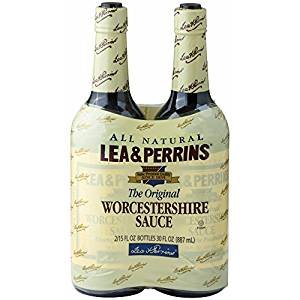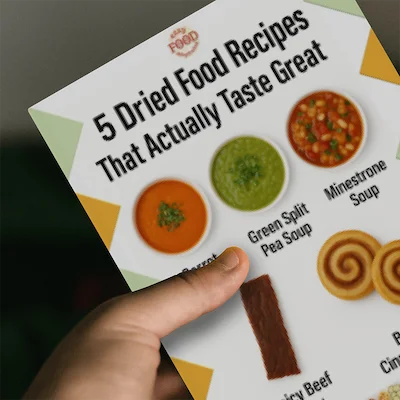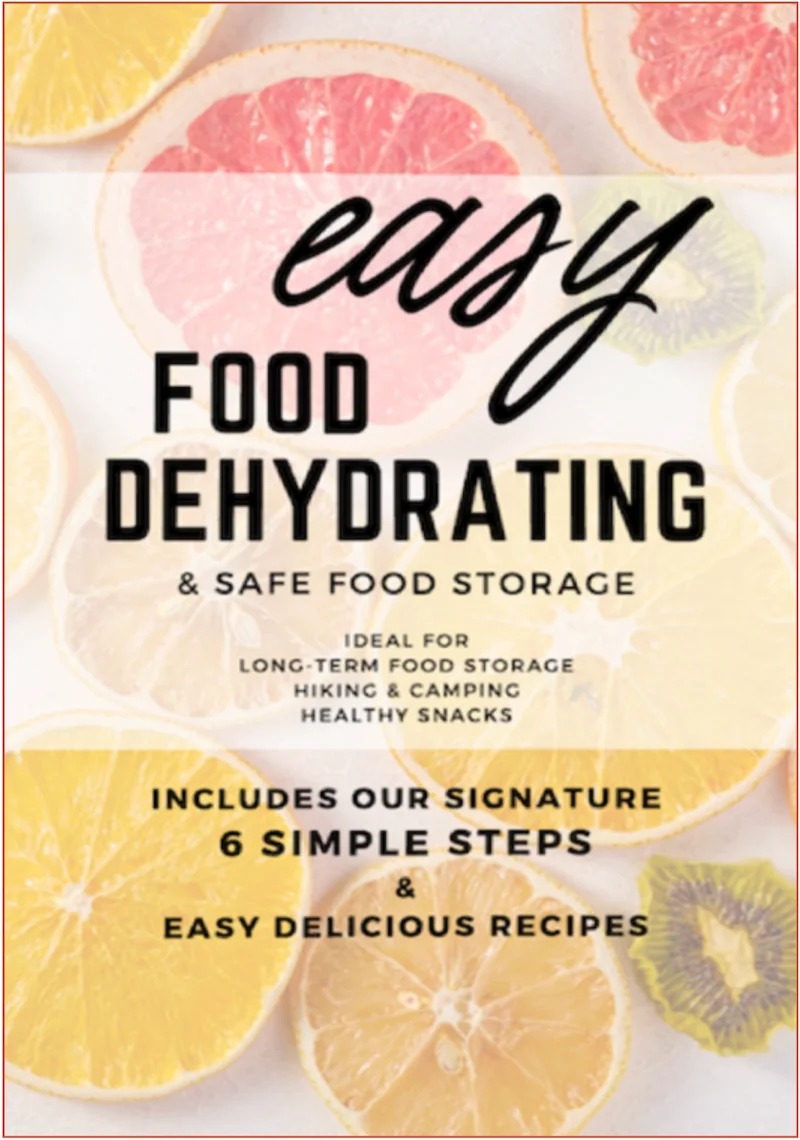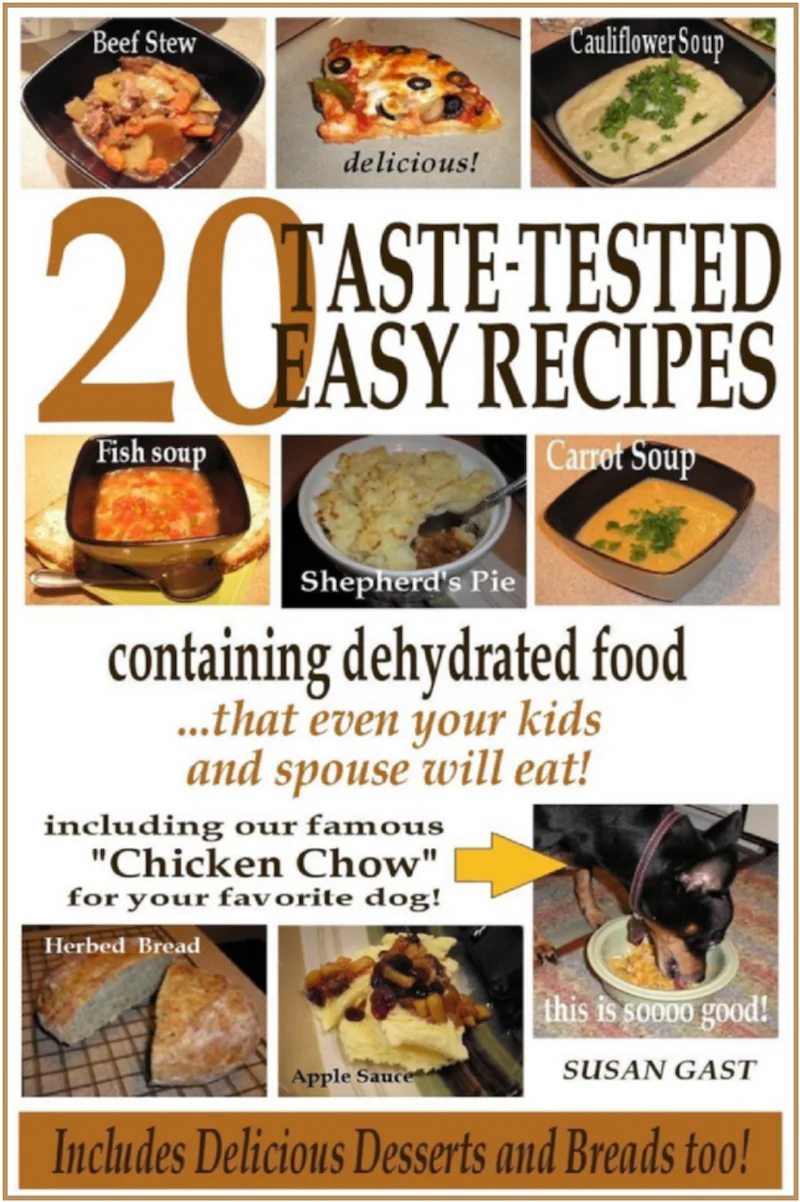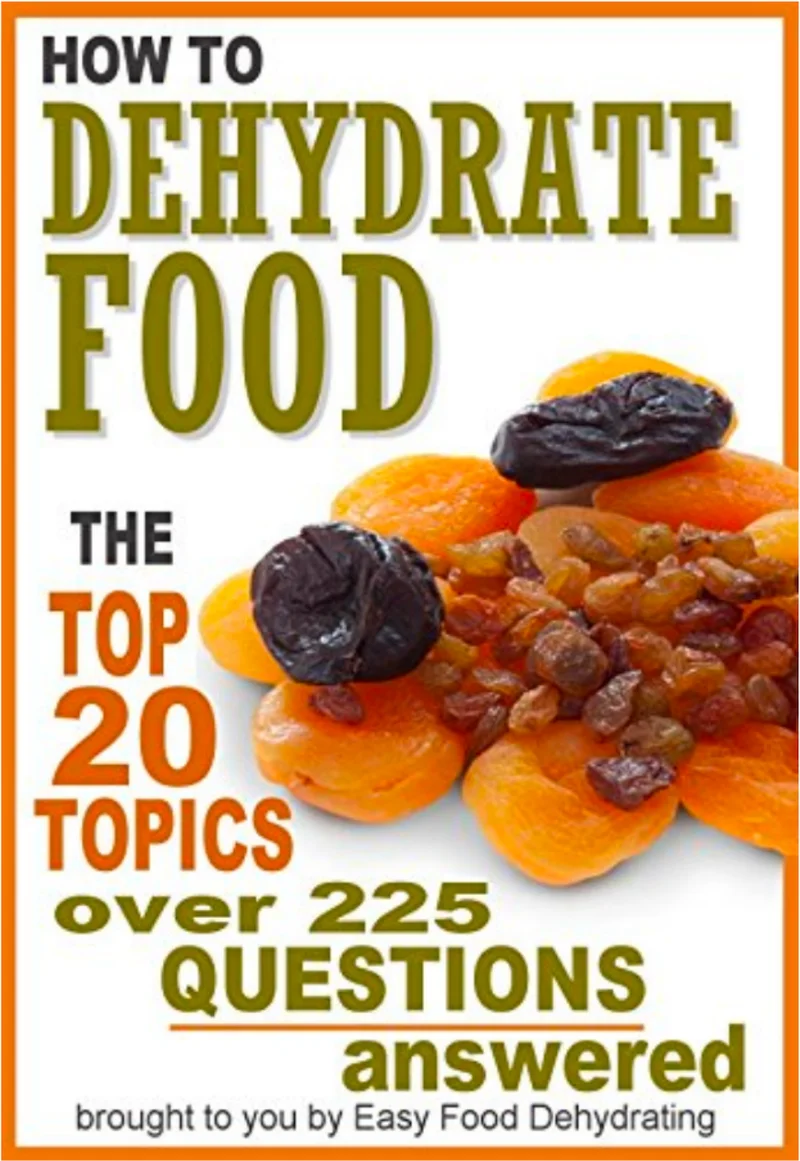What We Mean by “Dehydrate”
Here at Easy Food Dehydrating, “dehydrate” always means using an electric food dehydrator — the easy, reliable way to dry food at home.
- Home
- Easy Dehydrated Food Recipes
- Potato and Bacon Hash Recipe
Potato and Bacon Hash: A Savory One-Pan Meal

There’s nothing better than crispy golden potatoes mingling with smoky bacon—the ultimate comfort food for breakfast, brunch, or even dinner. This potato and bacon hash is hearty, budget-friendly, and comes together quickly with pantry-friendly dehydrated ingredients or fresh swaps.
✅ Quick Answer: How do you make potato and bacon hash?
To make potato and bacon hash, rehydrate dehydrated potatoes, onions, and garlic, then cook with crispy bacon, a simple sauce, and melted cheddar cheese. It’s ready in under 30 minutes and can also be made with fresh potatoes for a hearty, comforting meal.
Whether you’re cooking for a lazy weekend brunch or need a filling meal in minutes, this dish delivers savory satisfaction every time.
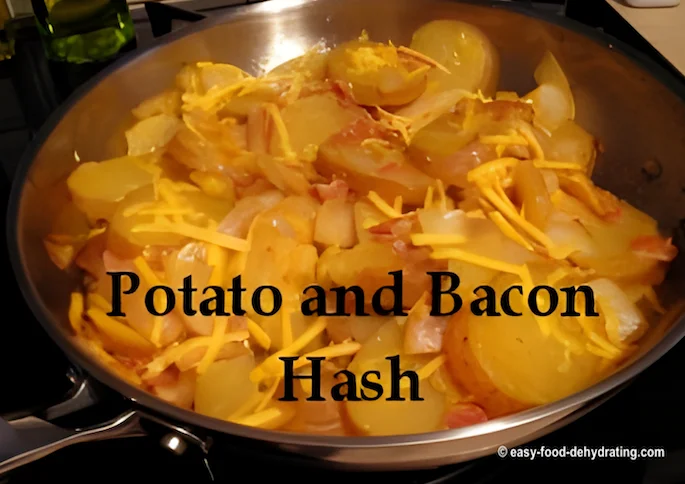
Want to switch it up? Swap the bacon for canned corned beef for a tasty twist—just be sure to keep an eye on the pan to prevent sticking.

Potato and Bacon Hash Recipe
We Brits pronounce Worcestershire like this: wus-ter-sher :-)
Ingredients
-
1-1/2 cups dehydrated potatoes, sliced
- 1/4 cup dehydrated onion
- 2 slices dehydrated elephant garlic
-
4 slices bacon (or 2 oz. corned beef, or ham. Nutrition Facts are with bacon)
- 1 tablespoon plain flour
- 2 tablespoons tomato ketchup
- 1 tablespoon Worcestershire Sauce
- 4 oz. grated cheddar cheese
- 1/4 cup cold water
- salt and pepper to taste
Instructions
- In a large saucepan, add the dehydrated sliced potatoes, onion, and elephant garlic. Add boiling water to cover them all.
- Let them rehydrate in the pan; add more boiling water if necessary.
- Fry the bacon in a separate pan.
- While the bacon is cooking, combine the flour and water in a measuring jug, add the ketchup and Worcestershire sauce, and set aside.
- When the potato mix is sufficiently re-hydrated (and remember, the potatoes are already cooked prior to dehydrating so they only need to be heated through), add the ketchup mix and gently stir and cook a few minutes more.
- Add the bacon, crumbled (or any other flavorful meat, i.e. canned corned beef*).
- Season with salt and pepper to taste.
- Sprinkle on about 4 oz. grated cheddar cheese, let it melt and serve!
*You can substitute the bacon for canned corned beef, but watch the corned beef from sticking to the pan.
Nutrition Information
- Servings: 8 servings
- Calories: 133kcals
- Fat: 6g
- Protein: 6.3g
- Carbohydrates: 13.8g

Lea and Perrin's Sauce at Amazon
Lea & Perrin's Worcestershire Sauce
It suits a variety of dishes, from steaks to chicken, with a depth that many fans appreciate.
It adds a unique twist to everyday recipes
As an Amazon Associate, I earn commission from qualifying purchases. The price you pay does not increase. Read disclosure here.
Make Potato & Bacon Hash with Fresh Ingredients
If you want to use fresh ingredients that you may have on hand, do this:
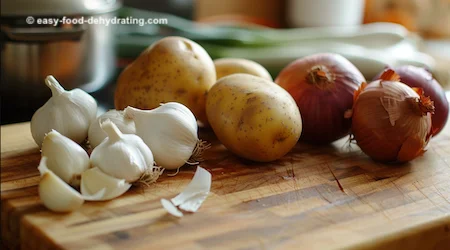
Exchange the dry ingredients in the recipe, above, for these fresh ingredients listed below!
- 3 to 4 large potatoes, washed, peeled and sliced, and pre-cooked
- 1/2 large onion, peeled and diced
- 2 slices fresh elephant garlic, or 1 and 1/2 small cloves "regular sized" garlic
Creative Ways to Use Leftover Potato and Bacon Hash
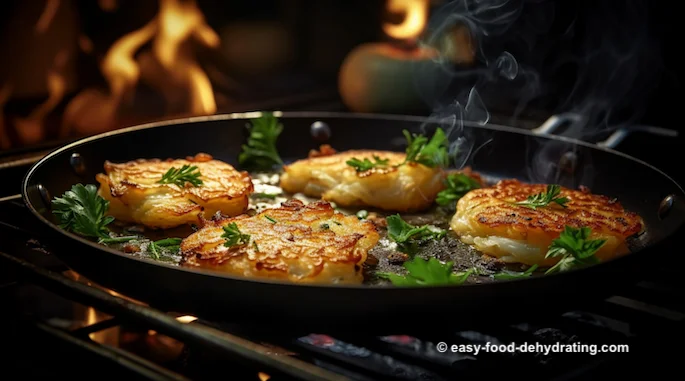
Got leftovers? Don’t let them go to waste—potato and bacon hash actually gets even better the next day.
One simple trick is to shape a couple of spoonfuls into flat, burger-shaped patties. Lightly flour them, then place gently into a pre-oiled hot pan. Let them sit undisturbed so they form a crispy golden crust before flipping carefully. We love serving these potato cakes with a squirt of tomato ketchup and seasoned scrambled eggs.
You can also turn leftovers into:
- Breakfast Burritos: Wrap patties in a tortilla with scrambled eggs, salsa, and cheese.
- Hash-Stuffed Baked Potatoes: Use as a hearty topping for a baked spud.
- Brunch Bowls: Layer hash patties with sautéed greens, avocado, and a fried egg.
Tip: Cooked hash stores well in the fridge for up to 3 days and reheats beautifully in a skillet, keeping that crispy texture intact.
20 Taste-Tested Easy Recipes
🍕 Pizza! 🥧 Shepherd's Pie! 🥘 Beef Stew! plus
Cauliflower Soup and Cauliflower Mash, along with crazy Carrot Soup!
Decadent Desserts: Carrot Cake and Cranberry Pineapple Pie!
and more...
Fresh food ingredient amounts are included for when you have fresh food on hand.
See which recipes are included here.
Potato & Bacon Hash FAQs: Your Top Questions Answered
Can I make potato and bacon hash ahead of time?
Can I make potato and bacon hash ahead of time?
Yes! Cook the hash fully, let it cool, and store in an airtight container in the fridge for up to 3 days. Reheat in a skillet for best crispiness.
What are the best substitutions for bacon?
What are the best substitutions for bacon?
Corned beef, ham, or even turkey bacon all work well. Just adjust cooking time and keep an eye on sticking.
How do I prevent my hash from getting soggy?
How do I prevent my hash from getting soggy?
Use a wide skillet, don’t overcrowd the pan, and let the potatoes crisp without stirring too often.
Can I freeze leftover potato and bacon hash?
Can I freeze leftover potato and bacon hash?
Yes—freeze in single-serving portions for up to 2 months. Reheat directly in a skillet or oven for best texture.
Thanks for checking out my potato and bacon hash recipe—one of my favorite hearty comfort meals. If you enjoyed this, you’ll love my free 5 Dried Food Recipes You'll Actually Love PDF, featuring carrot soup, minestrone soup, split pea soup, spicy beef jerky, and even banana cinnamon rolls.
Get your copy below and start cooking up even more delicious, easy meals!
Get 5 Dried Food Recipes You'll Actually Love
Here's where you can get your copy of our all new
5 Dried Food Recipes (That Actually Taste Great)
They're my all-time favorite easy dried food meals!
Get it here right now.
For Free!
Before You Go...
If you enjoyed this page, tap the ❤️ in the lower right-hand corner.
It saves this page to your Grow bookmarks so you can find it again later.
You’ll also see quick share buttons to copy the link, post to Facebook,
or save it straight to Pinterest.
